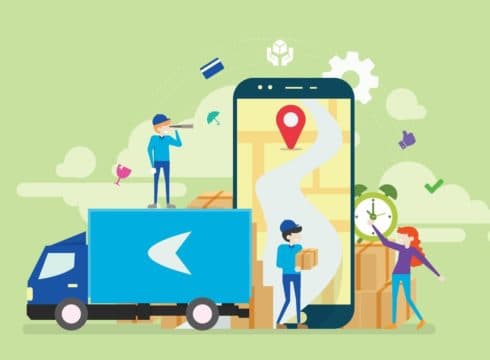Delivery of essential items like medicine and food has been allowed 24X7 by the state department
However, brick-and-mortar stores selling essential items will be allowed to open for four hours every day
Karnataka is the only state to have allowed ecommerce delivery of non-essential items in the first phase of lockdown
Inc42 Daily Brief
Stay Ahead With Daily News & Analysis on India’s Tech & Startup Economy
Covid19 Tech Impact
Latest updates & innovations, in-depth resources, live webinars and guides to help businesses navigate through the impact of the COVID19 pandemic on India's economy.
The government of Karnataka has allowed ecommerce platforms to continue their operations during the fourteen-day statewide lockdown that kicks off tonight (April 27), which brings some respite to the ecommerce marketplaces that are seeing a big revenue decline due to the lockdowns in Delhi and Maharashtra.
Delivery of all kinds of goods, both essential and non-essential, will be allowed across the state in order to balance out the demand of offline traders. Delivery of essential items like medicine and food has been allowed 24X7 by the state department in order to “minimise the movement of individuals outside their homes.”
Karnataka was one of the only states that allowed delivery of non-essential goods in the first phase of lockdown. In the current phase, Maharashtra and Delhi have banned the sale of non-essential goods as cases have skyrocketed in each state.
However, under the new rules, brick-and-mortar stores selling groceries, fruits and vegetables, dairy products and meat will be allowed to run only four hours a day, between 6 AM to 10 AM. Offline traders haven’t been happy with the government’s decision to allow ecommerce full-time and have protested against the same.
The guidelines were released on Monday (April 26) evening without making any distinction between essential and non-essential products as done by other states. Currently, Maharashtra and Delhi are currently under lockdown and only delivery of essential products has been allowed by the respective governments to keep the situation under control.
Hari Menon, cofounder and CEO BigBasket, highlighted that groceries orders from the state surged soon after chief minister B S Yediyurapppa announced the new restrictions. “Typically in a situation like this demand tends to shoot up, but we’re okay in terms of supply,” he said, adding that people from their logistics team have been falling sick and it will be one of the challenges that the company will have to address.
Earlier this month, an Inc42 report analysed that online grocery portals such as BigBasket and Grofers witnessed a surge in demand in areas where curfew-like restrictions have been placed. Grofers’ CEO Albinder Dhindsa shared an example of the same last week on Twitter. About 6 Lakh carts were created on the Grofers app, waiting to check out in case the government imposed a lockdown during PM Narendra Modi’s address last week (April 20). But as the demand for groceries goes up during the lockdown, customers of these portals complained online of late deliveries.
If Covid cases continue to increase across the country, India’s ecommerce startups would have to again employ their lockdown playbooks from last year particularly to figure out updates in curfews and curbs on a day-to-day basis as well as find ways to cover the losses from not being able to deliver non-essential products as most states would not allow them.
{{#name}}{{name}}{{/name}}{{^name}}-{{/name}}
{{#description}}{{description}}...{{/description}}{{^description}}-{{/description}}
Note: We at Inc42 take our ethics very seriously. More information about it can be found here.


